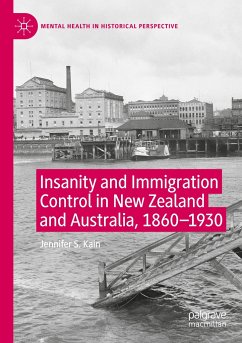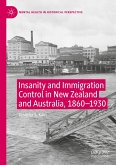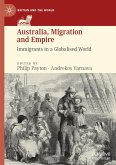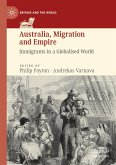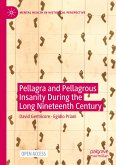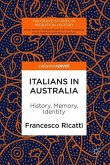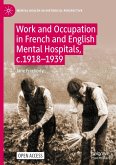This book examines the policy and practice of the insanity clauses within the immigration controls of New Zealand and the Commonwealth of Australia. It reveals those charged with operating the legislation to be non-psychiatric gatekeepers who struggled to match its intent. Regardless of the evolution in language and the location at which a migrant's mental suitability was assessed, those with 'inherent mental defects' and 'transient insanity' gained access to these regions. This book accounts for the increased attempts to medicalise border control in response to the widening scope of terminology used for mental illnesses, disabilities and dysfunctions. Such attempts co-existed with the promotion of these regions as 'invalids' paradises' by governments, shipping companies, and non-asylum doctors. Using a bureaucratic lens, this book exposes these paradoxes, and the failings within these nineteenth- and early twentieth-century Australasian nation-state building exercises.
"This book adds considerable depth to other histories examining what was a defining era in the creation of Australia's and NZ's immigration restrictions. ... Kain's forensic analysis of the ways in which ideas, ideology, ethics, policy and practice intersected in this period is a critical contribution to the history of immigration in both countries, and a welcome addition to the public conversation today on issues of mental health, tolerance towards immigrants and refugees, and the trauma of seeking asylum ... ." (Ruth Balint, The Journal of New Zealand Studies, JNZS, Issue 32, June, 2021)
"The contemporary politics of border control make this a timely work-and in the year of COVID-19 perhaps even more so. This is a valuable study of a little-knownadministrative practice, a subject that deserves attention alongside more familiar histories of racially based immigration histories." (Mark Finnane, Health and History, Vol. 22 (2), 2020)
"Strength of Kain's book is its ability to bring out paradoxes and contradictions in colonial immigration policy and practice. ... this is a good and accessible history of Australasian colonial border control generally, as well as a major contribution to our understanding of the history of psychiatry and mental health in the Anglosphere." (Philippa Martyr, Reviews in History, February 21, 2020)
"The contemporary politics of border control make this a timely work-and in the year of COVID-19 perhaps even more so. This is a valuable study of a little-knownadministrative practice, a subject that deserves attention alongside more familiar histories of racially based immigration histories." (Mark Finnane, Health and History, Vol. 22 (2), 2020)
"Strength of Kain's book is its ability to bring out paradoxes and contradictions in colonial immigration policy and practice. ... this is a good and accessible history of Australasian colonial border control generally, as well as a major contribution to our understanding of the history of psychiatry and mental health in the Anglosphere." (Philippa Martyr, Reviews in History, February 21, 2020)

